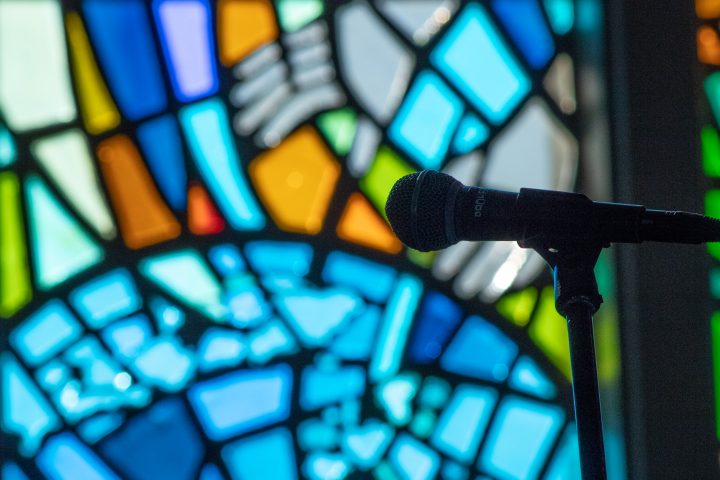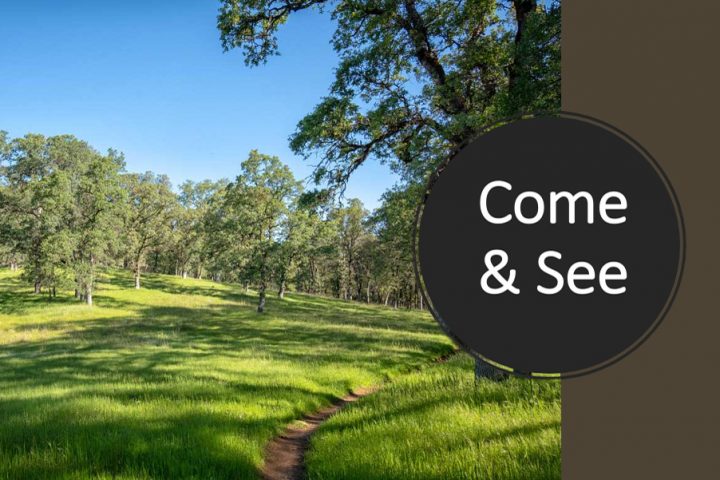Sermons from 2021
A Tent in a Promised Land
Hebrews 11:8-16
The most intractable problems in Silicon Valley have to do with housing. Concerns about homelessness, a volatile rental market, unaffordable starter homes, and $60 million mansions dominate headlines. The housing unsettledness of our time and place is not unique, however, and the most important considerations are not economic. We have been created to live in God’s presence, our lasting home is in a heavenly city he has prepared for us. Hebrews tells us that, by faith, Abraham ‘lived in a tent in the promised land’ as he looked forward to the promised city – teaching us faith lessons to begin a new year.
The Gospel Begins
Mark 1:1-4
For the final Sunday in our Advent Beginnings series, after exploring Matthew, John and Luke’s birth narratives, we will explore Mark’s birth narrative… but Mark doesn’t have a birth narrative! However, Mark does share good news: “Jesus Christ is the Messiah, the Son of God” (1:1). Throughout the birth narratives of the other Gospels, we see each character respond to the good news in different ways. But, all respond by changing their normal routines and reorienting their lives around Jesus. How do you respond this Christmas to the good news that Jesus Christ is the Messiah, the Son of God? Join us this Sunday as we prepare for Christmas as an entire church family.
Good News that Stays NEW and GOOD!
Luke 1-2
What do you think of when you think of “good news”? Have you ever wished for the good news of a new start in life, where you could push a reset button and do a clean install? At critical times in Israel’s history, when their world grew oppressive and morally dark, God intervened to subvert the existing order and granted his people a new beginning, a fresh start. But sadly, it never lasted. Luke’s magnificent opening to his gospel (120 verses) gives us a clue that this new beginning will set the stage for the grand climax to Israel’s history and with it, the salvation of the whole world. This will be history’s last new beginning. It is good news that remains forever new and good!
Love Made from Scratch
John 1:1-18
Carl Sagan once said, “If you wish to make an apple pie from scratch, you must first invent the universe.” The Apostle John never met Carl Sagan – but when it comes to God’s love, he was in full agreement! God loved us “from scratch”! Come find out this second Sunday of the Advent season what that means for us and for our families as we look at the beginning of John’s Gospel together.
A New Shoot from a Dead Tree
Matthew 1-2
The four Sundays of Advent begin the church’s annual liturgical calendar. It is a season of longing and hope. We look back and remember Israel’s hope that God would come to save his people. We look forward in our own hope that Jesus will come again. During these four Sundays we will look at how the four gospels begin their story of Jesus in very different ways, beginning this Sunday with Matthew. Can the way Matthew tells the story of Jesus help us make sense of our own story?
Thankful to be Swimming with Elephants
John 1-12
The Gospel of John is like a pool that is “shallow enough for a child to wade and deep enough for an elephant to swim.” As we enter into the Thanksgiving holiday, we are thankful to be swimming with elephants in the Gospel of John. In the past two years, we have explored chapters one to twelve of this Gospel. And, what we have seen is the unparalleled majesty of Jesus. Indeed, no one has ever said the things he said, and no one has ever done the things he’s done. And, through it all, we’ve discovered how thankful we are for who Jesus is and what he has done! “We give thanks to the Lord for he is good, his steadfast love endures forever” (Ps 136:1). Join us this Sunday as we review some of the highlights from the first twelve chapters of John, while combining the service with elements from our typical Thanksgiving service.
Love’s Last Appeal
John 12:23-50
Two weeks ago, we saw Jesus enter Jerusalem, the text we associate with Palm Sunday. Jesus publicly claims kingship, but in an upside-down way. He rides on a donkey demonstrating his humility, gentleness, and desire for peace. That text ended with some Greeks saying they wanted to see Jesus, meaning they want to know what Jesus is all about. In response, Jesus gives his final public appeal for belief in him and his kingship, our text for this Sunday. This is love’s last appeal, summarized best in the phrase “a grain of wheat” (John 12:24). Join us this Sunday as we explore the final public appeal from Jesus in the book of John.
Joy and Pain
1 Peter 1:6-9
The True King Comes
John 12:12-22
Jesus now enters Jerusalem as the great king. However, he rides on a donkey, not a war horse. He is not surrounded by an army or by captured slaves, and yet, the crowds still lay down palm branches and shout “Hosanna.” They think he will be a national liberator. Yet he rides in on a donkey, fulfilling Zechariah’s prophecy as one who brings “peace to the nations,” not who conquers the nations (Zech 9:10). Indeed, here comes our king, and he will be a kind of king the world has never seen. Join us this Sunday as we celebrate Palm Sunday in October.
Extravagant Devotion
John 12:1-11
In John 12, Jesus goes back to the place of hostility, to Bethany near Jerusalem, where he has an intimate meal with his friends Mary, Martha and Lazarus. In the middle of dinner, Mary anoints Jesus’ feet with very expensive perfume, worth an entire year’s wages. Out of extravagant love, joy and thanksgiving for Jesus, Mary acts with abandon in her worship of him, and she fills the entire house with the aroma of life. Authentic worship of Jesus, our Savior and King, is never merely private. It always spills over onto others. Join us this Sunday to explore this amazing scene.
The Ugliness of Religion
John 11:45-57
This week we see the fallout of the raising of Lazarus, and it is not good. The Religious Authorities meet to decide the fate of Jesus. And what we see are defining characteristics of “religion,” and they are ugly: a desire for power, a desire for control and a desire to exalt self. John interprets the response of the Religious Authorities by pointing us in the right direction, we are not children of religion, rather we are “children of God.” Over against the ugliness of religion, we are invited into a beautiful relationship of love as children of a good, good father.
From Death to Life
John 11:1-44
This week we come to the climactic deed of Jesus’ ministry. We’ve seen Jesus stand before plain water, then turn it into wine. We’ve seen Jesus stand before lameness and blindness, then heal a lame man and a blind man. We’ve seen Jesus stand before thousands of hungry people with five loaves and two fish, then multiply the loaves and fish to feed all of them. Throughout the Gospel of John, he has shown his authority over all of creation. Now he stands before death and says, “I am the resurrection and the life. Whoever believes in me, though he die, yet shall he live.” He then calls a dead man out of the grave, and the dead man actually walks out. Come Sunday as we explore this astonishing text.


